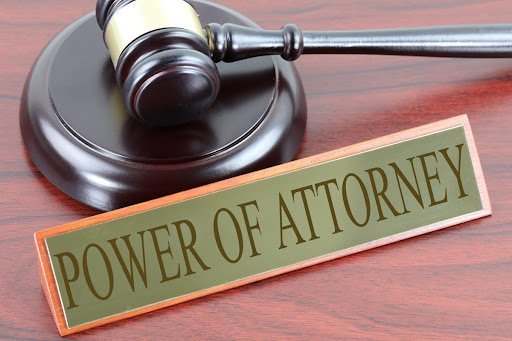Has it ever crossed your mind who would oversee your finances and make health decisions on your behalf if you become unable to make these decisions for yourself? If you’re worried about it or would like to have a say in what happens if you ever lose mental capacity (the ability to make decisions for yourself), it’s a good idea to get yourself a power of attorney.
Whether you have no idea what powers of attorney do, or if you’re interested to find out more about them, this article will look into everything you need to know.
Table of Contents
What Is a Power of Attorney?
Powers of attorney have the legal ability to make financial and/or health decisions on behalf of an individual. You can have a POA to make financial or health decisions for you, this can be the same person, or you can appoint someone different for both.
You can only appoint a power of attorney whilst you still have mental capacity. This is to make sure you are in the right mind to decide who you would like to give this power to. There are two main types of POA’s, lasting power of attorney or ordinary power of attorney. A lasting PoA is the most common type and has no expiry date, whereas an ordinary PoA only has PoA status for a limited amount of time.
Who Can Be My POA?
It is entirely up to you who you want to appoint as your power of attorney. However, they are usually someone very close to the individual and someone they trust to make decisions they would have wanted. This usually includes:
- The person’s husband, wife, partner, or civil partner
- A close family member
- A close friend
- A professional, such as a solicitor
Can I Have More Than One Power of Attorney?
You can appoint more than one attorney to make financial or health decisions for you. There isn’t a limit on how many you appoint, and you can have replacements in case your chosen attorneys are no longer able to act on your behalf.
You are also able to decide whether your attorneys must make decisions together or individually at all times or for certain decisions.
What Can a Power of Attorney do?
A health PoA can decide the following on behalf of an individual:
- The day-to-day care of the individual, such as their routine
- Who they can be in contact with
- Where they will live
- What the individual eats
- Decisions regarding hospital care, home care etc
- What social activities the individual can take part in
- They will be able to go against the doctor’s advice if they feel it is in the individual’s best interest
These decisions can only be made by a PoA once an individual has lost the mental capacity to make these decisions for themselves.
A financial PoA can make decisions in the following:
- The individual’s bank accounts
- Property investments, renting out their property, selling property or buying property on the individual’s behalf
- Decisions to do with the individual’s home such as maintaining it or making repairs
- Claiming benefits for the individual
- Paying bills on their behalf
- Making purchases for anything the individual needs
- Claim expenses such as travel or postal costs if required
In any decision made by a power of attorney, it must be made with the individual’s best interests in mind. They must make decisions they think the individual would have made themselves.
What Can’t They Do?
There is a limit to the decisions a power of attorney can make. This includes:
- Making changes to a person’s will
- Giving away large financial gifts
- Paying themselves with the individual’s money
- Making a personal gain out of being a power of attorney
- Restricting the freedom of the individual
Why Should I Have a Power of Attorney?
Appointing powers of attorney will not only provide peace of mind, but it gives the chance to make sure someone you trust will be in charge of important decisions if you lose mental capacity. You can also be flexible and decide how much power your attorneys can have over their decisions.
If you are concerned about losing mental capacity in the coming years, getting a power of attorney in place is a great way to put your worries at bay.
Read also: IOD? 5 Times You Must Hire a Workers Compensation Attorney

